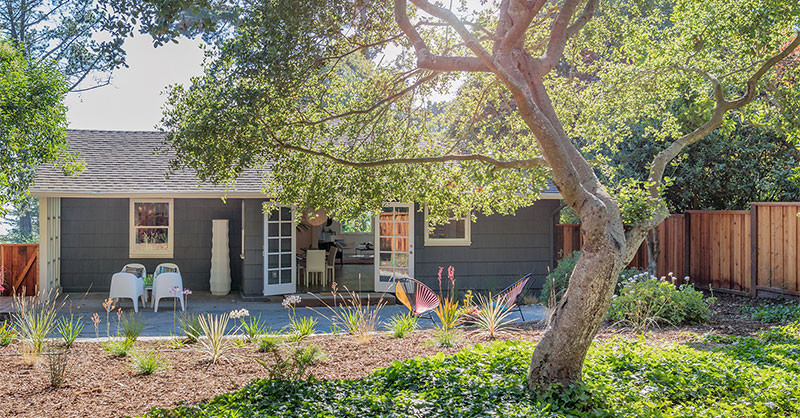
Owner-occupiers can rent out room(s) or part of their property while living there. New laws mean this option is also available to people who have accessed certain transfer (stamp) duty concessions, including first home buyer grants or concessions.
Before you enter a rental agreement, check if the Residential Tenancies and Rooming Accommodation Act 2008 (the Act) applies.
When renting out part of a property, the rental agreement may be partially or completely covered under the Act, depending on:
- how many rooms are rented or available for rent
- if a self-contained secondary dwelling is rented or available for rent
- whether a rental bond is taken.
Below is a guide to help property owners and tenants/residents understand their obligations under the Act.
When does the Act apply?
The Act may apply partially, if:
- 1, 2 or 3 rooms are rented or available for rent, and
- one or more rental bonds are taken, and
- the property is the owner’s main residence.
If a bond is taken, the sections of the Act that relate to rental bonds apply. More information on rental bonds can be found below.
In these cases, other parts of the Act may not apply to your agreement, and you may need to seek independent legal advice. This includes the process for ending an agreement, the process for inspecting a room, and whether the tenant/resident can ask to keep a pet.
The Act may apply completely, if:
- 4 or more rooms are rented or available for rent, or
- a self-contained secondary dwelling is rented or available for rent.
In these cases, your obligations and the type of tenancy agreement needed can vary. More information on the types of rental agreements can be found below.
The Act may not apply, if:
- 1, 2 or 3 rooms are rented or available for rent, and
- no rental bonds are taken, and
- the property is the owner’s main residence.
You may need to seek independent legal advice. The RTA cannot provide information and support for matters that aren’t covered under the Act.
If you're unsure whether the Act applies, you can apply to the Queensland Civil and Administrative Tribunal (QCAT) for a determination.
Rental bonds
Property owners can take bond money as part of a rental agreement. The requirements for taking a bond include:
- Property owners can request a maximum amount of bond of up to:
- 4 weeks’ rent for general tenancies and rooming accommodation
- 2 weeks’ rent for moveable dwellings
- 3 weeks’ rent for moveable dwellings if electricity is provided.
- Lodging the bond with the RTA within 10 days. Bonds can be lodged online or by post with a Bond lodgement (Form 2).
- The property owner must give the tenant/resident a receipt for the bond.
- The property owner may be required to give the tenant/resident appropriate supporting evidence when making a bond claim or disputing a bond. Whether the property owner needs to provide evidence depends on when the bond was lodged with the RTA.
See our rental bonds page for more information.
Written rental agreements
The property owner must provide a written tenancy agreement in situations that are completely covered under the Act.
Agreements may be a General tenancy agreement, Moveable dwelling agreement or Rooming accommodation agreement.
For situations that are partially covered or not covered under the Act, we recommend confirming any agreement in writing. Property owners and tenants/residents may need to seek independent legal advice if the Act does not apply in full.
Secondary dwellings
A secondary dwelling is a dwelling that’s inside, attached to or separate from the main dwelling on a property. For example, granny flats are a common type of secondary dwelling.
The type of tenancy agreement needed for a secondary dwelling depends on whether it’s self-contained or shares facilities with the main dwelling (e.g. kitchen, bathroom, laundry).
Disputes about residential tenancies
Tenancy issues may occur between any of the parties involved in a tenancy agreement.
Disputes for agreements that are covered under the Act
We encourage property owners and tenants/residents to try to self-resolve tenancy issues before taking any other action.
If you cannot resolve the issue, you can apply for free dispute resolution with the RTA.
If you cannot reach an agreement, or if the matter is unsuitable for RTA dispute resolution, you can apply to the Queensland Civil and Administrative Tribunal (QCAT).
Disputes for agreements that are not covered under the Act
You may need to seek independent legal advice. The RTA cannot provide information and support for matters that aren’t covered under the Act.
More information
The RTA provides information, support and dispute resolution for rental bonds and agreements covered under the Act. You can contact us to learn more.
Note: While the RTA makes every reasonable effort to ensure that information on this website is accurate at the time of publication, changes in circumstances after publication may impact on the accuracy of material. This disclaimer is in addition to and does not limit the application of the Residential Tenancies Authority website disclaimer.

